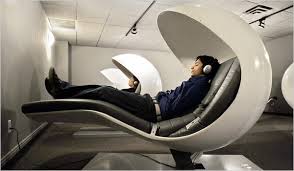What Workers Adore and Abhor: Mentors and Tormentors

November 19, 2015 | Posted in Leading Hartfully | By Gaia Hart
Mentors affect teams positively and tormentors infect teams. We can look at traits employees adore and abhor in their mentors and tormentors and what they can relate to themselves as they look into their leadership mirror to see how they come across to others. How do you rate on the Mentor/Tormentor scale? Are you adored or abhorred? What changes can you make today to move towards adored mentor status?
Leadership traits that people adore
- Has a clear vision of how people’s work meets the leader’s expectations.
- Provides timely, clear, constructive feedback.
- Expresses appreciation and gives credit where credit is due.
- Actively listens and answers questions.
- Treats others with respect and kindness.
- Consistently fair in their treatment of others.
- Trains, develops, and grows their people.
- Willing to jump in and help out when things become difficult.
- Has an open door policy and is available.
- Supportive and protective of their people when things go wrong.
Leadership traits that people abhor:
- Indecisive
- Foul-mouthed
- Plays favorites
- Doesn’t take time to learn about employees personally, treats them as cogs in the production wheel
- My way or highway thinking
- Takes credit for your work
- Doesn’t take action when needed, particularly for discipline problems
- Has clunky communication skills and low emotional intelligence
- Does not respect younger workers and their contribution
- Kisses up and kicks down
Obviously, this list is not comprehensive. There are many great and not-so-great leadership traits we could add. One of the primary skills of strong leaders is excellent communication. Every item on the list above is affected by communication style and emotional intelligence.
Here are a few questions you can ask yourself to improve your leadership skills and help you get the results you want:
How do you treat your people? To help answer this question, you might ask yourself, “How do my people treat me?” For example, if you are warm and friendly, your people will probably be warm and friendly in return. On the other hand, if you are cold and blunt or if your demeanor is unpredictable, your team will likely go to great lengths to avoid you. Be approachable and consistent in dealing with others and they will reciprocate. We are mirrors for how people treat us. If you notice that others are not treating you well, not saying hello and good-bye, then look inward to see if they are mirroring your demeanor.
Does your team understand how what they do contributes to the success of the organization? Don’t assume they know, even if the answer may be obvious to you. Recent research indicates that somewhere between 70% and 95% of people do not know how what they do contributes to their organization’s success. If most individuals lack this understanding and you haven’t conveyed it to them, then you are missing the opportunity to increase their motivation, and the likelihood that they will be as productive as they could be. Ask them if they know their impact on the organization’s success, listen to their response, and be prepared to fill in the gaps. According to Dan Pink in his book Drive; he states that motivation today relies on purpose, autonomy and mastery. If they don’t know their purpose, are not given the space to do it and to learn it, then you can be sure you’re a tormentor they abhor and they won’t be there for long. Do you express appreciation for a job well done to each person on your team at least once a week? Particularly with the new workforce, they expend on-demand feedback and may not wait around for it. The younger generations in and entering the workforce today are serial freelancers with the skills to get jobs at other places and won’t hesitate to jump ship and go out on their own. Make sure you are doing what you can to retain them and be their mentor they adore.
Four Core Needs of Every Employee

September 23, 2015 | Posted in Leading Hartfully | By Gaia Hart
The Harvard Business Review interviewed more than 19,000 people, at all levels in companies, across a broad range of industries asking the question of what stands in the way of our being more satisfied and productive at work.
The results were that people feel better and perform better and more sustainably when four basic needs are met:
- renewal (physical);
- value (emotional);
- focus (mental);
- and purpose (spiritual).
No big surprises in the answers as this is what I’ve been teaching for decades that when we feel more energized, appreciated, focused and purposeful, then we perform better. I recently read several articles in Training journals about the importance of play at work and gamification in the learning arena helping workers learn better and having more fun at work improves productivity. Really? They are JUST NOW printing these articles?? Those of us in the Recreation and Training industries have known for many decades that work made fun gets gone and good times lead to good business. Also that laughter and learning go together to improve retention. When we are more fully engaged, present, comfortable, centered and on purpose, we do better all the way around in life.
When we get to rest and renew our energy during the day, we are better able to focus, handle workloads and be creative. One reason to get out of your office over your lunch break. Your brain and your body need a rest so you come back refreshed and renewed.
Feeling valued creates a deeper level of trust and security at work, which frees us to spend less energy seeking and defending our value, and more energy creating it. Having a sense that what we do matters and serves something larger than our immediate self-interest toward our personal purpose which hopefully is aligned with the organizational purpose is a grand source of motivation.
What’s surprising about our survey’s results is how dramatically and positively getting these needs met is correlated with every variable that influences performance. What they found that meeting even one of the four core needs had a dramatic impact on every performance variable in the study. When all four needs are met, the effect on engagement rises from 50 percent for one need, to 125 percent. Engagement, in turn, has been positively correlated with profitability.
You can start with just one core need and add the others as the previous one becomes habit and ingrained in your organizational culture. Only 20 percent of respondents said they were encouraged by their supervisors to take renewal breaks during the day. By contrast, those who were encouraged to take intermittent breaks reported they were 50 percent more engaged, more than twice as likely to stay with the company, and twice as healthy overall. Leaders need to question their outdated assumptions that that performance is best measured by the number of hours employees puts in — and the more continuous the better — rather than by the value they generate.
In a recent interview with Arianna Huffington of The Huffington Post empire regarding nap pods she has installed in her organization; she stated that she does not pay her staff for their stamina, she pays them to for their creative brain power and if they are too tired to think, they are not bringing creative ideas to the table. So a renewal nap of 20 minute is certainly worth it in the long run. You can’t argue with that.
